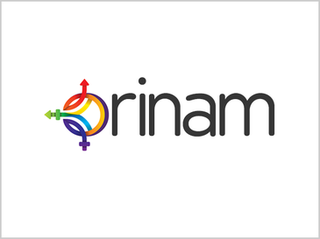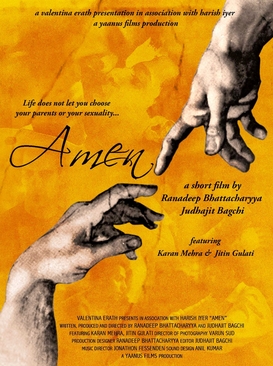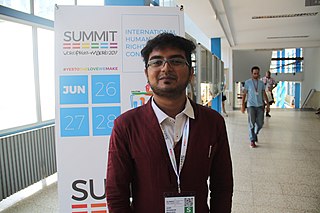 | |
| Website | http://gaysifamily.com |
|---|---|
The Gaysi (Gay Desi) family is an online space and E-zine for queer Desis based in Mumbai.
 | |
| Website | http://gaysifamily.com |
|---|---|
The Gaysi (Gay Desi) family is an online space and E-zine for queer Desis based in Mumbai.
A website for gay Desis across the world, it began in November 2008 by MJ and Broom when they realized that India had a scarcity of quality online queer content. “The aim was to make you feel like you’re not the only one. The coming out process for any individual is never easy. After all, it is family and society one has to come out to,” says MJ. The idea behind Gaysi Family was to provide a platform for queers. Today, the website features opinions, personal stories, fiction, erotica, news about LGBT developments in India and across the world, book and film reviews. Some of the popular topics include ‘Coming Out’, ‘Aam Gaysi interviews’, ‘Homophobia’ and IPC 377. [1] [2]
Gaysi Family provides a platform for the LGBT community from the South Asian Subcontinent to express their views, share their coming out stories, poems, erotic fiction, book reviews, movie reviews or event notices. Additionally, they also interview popular queers and straight allies. A new section called the "Writer's Bloc" was launched, which hopes to translate diverse queer literature from Indian regional languages into English and vice versa. [3]
In 2013, Gaysi Family launched its queer journal called The Gaysi Zine, a magazine dedicated to curating content about what it means to be gay and desi {=Gaysi}—gender or labels notwithstanding. The magazine was launched on 28 November at the lawns of Goethe-Institut, Max Mueller Bhavan, New Delhi. The panel included Parvati Sharma, who is the author of "The Dead Camel and Other Stories of Love", Arunava Sinha, who is the translator of classic, modern and contemporary Bengali fiction and nonfiction in English. Pramada Menon, who is the co-founder of CREA, and now consultant on gender and sexuality, Priya, the Editor of The Gaysi Zine and co-director of The Gaysi Family, and Antara Datta, a lecturer of English Literature at Delhi University. [4]
They also sponsored a video titled "Happy in Gaysi Land" featuring famous gay activist Harish Iyer. The video showcases Indian queers dancing happily to the tune of "Happy" by Pharrell Williams, after the events of Indian's ban on same-sex relations. Shot over a 48-hour period, the video features Indian LGBT residents dancing all over Mumbai in an effort to engage in "a different form of activism." [5]
Homosexuality in India is socially permitted by most of the traditional native philosophies of the nation, and legal rights continue to be advanced in mainstream politics and regional politics. Homosexual cohabitation is also legally permitted and comes with some legal protections and rights.

Solaris Pictures is an Indian film production company based in Mumbai. It was created by Sridhar Rangayan, and Saagar Gupta in 2001. The two have gone on to create several award-winning films under Solaris Pictures' banner, focusing on LGBT issues and HIV/AIDS.

Ira Trivedi is an Indian author, columnist, and yoga teacher. She writes both fiction and nonfiction, often on issues related to women and gender in India. Her works include India in Love: Marriage and Sexuality in the 21st Century, What Would You Do to Save the World?, The Great Indian Love Story, and There's No Love on Wall Street.

LGBTQ people are well documented in various artworks and literary works of Ancient India, with evidence that homosexuality and transsexuality were accepted by the major dharmic religions. Hinduism and the various religions derived from it were not homophobic and evidence suggests that homosexuality thrived in ancient India until the medieval period. Hinduism describes a third gender that is equal to other genders and documentation of the third gender are found in ancient Hindu and Buddhist medical texts. The term "third gender" is sometimes viewed as a specifically South Asian term, and this third gender is also found throughout South Asia and East Asia.

India has a long and ancient tradition of culture associated with the LGBTQ community, with many aspects that differ markedly from modern liberal western culture.
Humsafar Trust is an NGO in Mumbai that promotes LGBT rights. Founded by Ashok Row Kavi, Suhail Abbasi, and Sridhar Rangayan in 1994, it is one of the largest and most active of such organisations in India. It provides counselling, advocacy and healthcare to LGBT communities and has helped reduce violence, discrimination and stigma against them. Humsafar Trust is the convenor member of Integrated Network for Sexual Minorities (INFOSEM).
Queer Azaadi Mumbai Pride March, also called Queer Azaadi March and Mumbai pride march, is an annual LGBTQIA pride parade that is held in the city of Mumbai, capital of Maharashtra, India. It usually begins from Gowalia Tank ending at Girgaum Chowpatty. It, along with the Pride Week, is organized by Queer Azaadi Mumbai, a collective of organizations and individuals working for the rights of LGBTQIA community. The participants of the march include people from the LGBTQIH community as well their "straight allies", from India and outside. In addition to being a celebration of queer pride, the pride march and related events are a platform to ask for equal rights.

Delhi Queer Pride Parade is organised by members of the Delhi Queer Pride Committee every last Sunday of November since 2008. The queer pride parade is a yearly festival to honour and celebrate lesbian, gay, bisexual and transgender people, and their supporters. The parade usually runs from Barakhamba Road to Tolstoy Marg to Jantar Mantar.
Gaylaxy is an Indian lesbian, gay, bisexual and transgender (LGBT) magazine. The magazine is based in Kolkata.
This is a timeline of notable events in the history of non-heterosexual conforming people of South Asian ancestry, who may identify as LGBTIQGNC, men who have sex with men, or related culturally-specific identities such as Hijra, Aravani, Thirunangaigal, Khwajasara, Kothi, Thirunambigal, Jogappa, Jogatha, or Shiva Shakti. The recorded history traces back at least two millennia.

Orinam is a non-funded, social, and activist collective that works to enhance understanding of alternate sexualities and gender identities among families, communities and society. It was founded in 2003 in Chennai under the name MovenPick and is one of the oldest collective of its kind in India. People affiliated with Orinam are from or trace their ancestry to the following geo-cultural: People of Tamil Origin from Tamil Nadu, India. Orinam provides a platform for creative expression, personal and social commentary by Queer people of Tamil Origin and of Indian Origin primarily. Orinam also acts as a local support group in Chennai for the queer community. Orinam also partners with the city-, state- and national initiatives around decriminalisation of homosexuality by amending Section 377 of the Indian Penal Code and LGBTQ rights.

Amen is a 2010 short film directed, written and produced by Judhajit Bagchi and Ranadeep Bhattacharyya and was released in association with Passion Film.

Anwesh Kumar Sahoo is an Indian artist, blogger, writer, model, actor and a TEDx speaker. He was crowned Mr. Gay World India 2016, becoming the youngest winner of the crown at the age of 20. He represented India at the Mr. Gay World 2016 pageant held in Malta, Europe and made it to the Top 12. He is a recipient of the Troy Perry Award for compassionate activism, making him the first Indian to be honored with the award. He's a graduate in Electronics and Communication Engineering from IIIT Delhi, and secured a Master of Design degree from NIFT, New Delhi in 2020. Anwesh went on to work for Aristocrat Gaming as a Technical Artist, and is now pursuing a Master of Science at University College Cork.

Gopi Shankar Madurai is an Indian equal rights and Indigenous rights activist. Shankar was one of the youngest, and the first openly intersex and genderqueer statutory authority and one of the candidates to contest in 2016 Tamil Nadu Legislative Assembly election. Shankar is also the founder of Srishti Madurai Student Volunteer Collective. Shankar's work inspired the Madras High Court to direct the Government of Tamil Nadu to order a ban on forced sex-selective surgeries on intersex infants. In December 2017, Shankar was elected to the executive board of ILGA Asia. In August 2020, the Ministry of Social Justice and Empowerment appointed Shankar as the South Regional representative in the National Council for Transgender Persons.
Kolkata Rainbow Pride Walk (KRPW) is the oldest pride walk in India and South Asia. The first march in Kolkata was organised on 2 July 1999. The walk was called The Friendship Walk. Kolkata was chosen as the first city in India to host the march owing to Kolkata's history of movements for human and Political Rights. Currently, Kolkata Rainbow Pride Walk is organised by the Kolkata Rainbow Pride Festival (KRPF).

Bengaluru Namma Pride March is a queer pride march that is held annually in the city of Bengaluru in Karnataka, India, since 2008. The march is organised by a coalition called Coalition for Sex Workers and Sexuality Minority Rights (CSMR). The pride march is preceded by a month of queer related events and activities.
LABIA is an organization for queer and transgender people in Mumbai, India. It was founded in 1995 as Stree Sangam, and is often cited as a significant organization in the history of LGBTQ organizing in India.
Naz and Matt Foundation is a charity based in the United Kingdom that tackles homophobia triggered by religious and cultural beliefs.

Gay Bombay is an LGBTQ social organization in Mumbai, India, which promotes LGBT rights. It was founded in 1998. The organization works to create an awareness of gay rights through workshops, film screenings, and parties. The organisation aims to create a safe space for the LGBT community.

Lokesh Kumar is an Indian film director, producer and screenwriter. He made an award-winning Tamil language feature film My Son Is Gay.